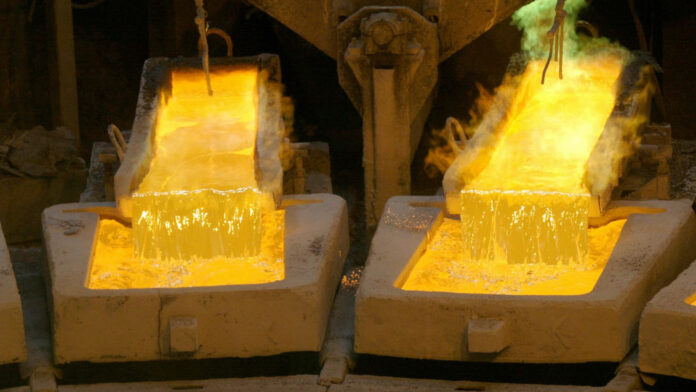
GLENCORE’S coal production and copper expansion potential has marked it out as the best diversified mining firm for investors this year.
“The coal cushion is defensive. The copper leverage should lead to significant upside to the Glencore share price when the global economy eventually recovers from the ongoing/upcoming slowdown,” said Christopher LaFemina, an analyst for US bank Jefferies in a recent report. “Glencore is well positioned for now and for later, in our view.”
Glencore is due to report $7.5bn in capital returns in February when it announces its full year results for the 2022 financial year. For 2023, a total capital return of around $14bn has been forecast of which $9.3bn will be in dividends, and $5bn balance in a continuation of its share buyback programme.
As a result of this good news, Glencore shares may “struggle” in the short-term. As China reopens from its crippling Covid-19 lockdown regime of last year, investors may decide to rotate into firms “with greater cyclical leverage,” said Deutsche Bank in a report.
But it’s the long-term aspect of Glencore’s investment thesis that seems to set it apart from its peer group.
Its 110 million tons (Mt) in annual coal production will continue to drive the company this year, according to company estimates. Even though thermal coal prices may ease, the fuel is expected to comprise just over half of 2023 Ebitda of $28.7bn, assuming current spot prices. “We remain buyers,” Deutsche Bank said.
“The company has the ability to sustain its free cash flow yield even as energy markets normalise,” as coal related cash flow will be replaced by rising copper cash flow, said Goldman Sachs.
Glencore CEO, Gary Nagle indicated during an investor update in December that the company was prepared to announce new brownfield projects and acquisitions, and even a greenfields development in the form of Argentina’s $6bn, 350,000 ton a year El Pachón copper project if the market looks like it might need the metal.
The world “doesn’t get it”, said Nagle of the copper market over the next ten years. “It doesn’t understand that there’s a massive deficit coming.”
He forecast 100Mt in new copper demand to 2030 of which 76Mt would be for power grid expansions and 19Mt for electric vehicles. This would lead to a massively under-supplied copper market equal to a cumulative annual deficit of 50Mt.
A copper price of around $15,000 per ton would be required to balance the market, Nagle believes. This compares with the current copper price of about $8,900/t – a near doubling in price for the metal which would bolster cash flow, incentivise new production, and send the forward price of Glencore shares higher. “We agree,” said LaFemina. “This copper price outlook is not reflected in the copper mining equities today”.
Glencore’s marketing division also helps diversify the group while a strategy aimed at battery recycling aims to capitalise on the secondary market for metal supply. But another important catalyst to Glencore’s share price is the continued streamlining of the business.
It has sold $3.4bn in non-core assets since the beginning of 2021 – a strategy Nagle accelerated soon after taking over from former Glencore CEO, Ivan Glasenberg in 2021.
According to analysts, the sale or spin off of agribusiness Viterra remains “still a possibility”. The business generated first half Ebitda of $1.1bn and has a net present value of $8.2bn.











